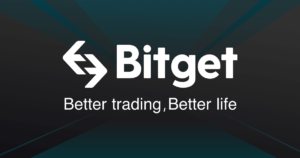Bitget Wallet has announced the integration of Telegram into Web3 through the OmniConnect kit, allowing mini apps to operate on multiple blockchains.
This development represents a significant step towards greater interoperability in the crypto ecosystem. Let’s see all the details below.
How Telegram becomes a central hub for web3 with Bitget
The world of Web3 continues to evolve rapidly, and one of the latest developments concerns the integration of Telegram mini apps into the crypto ecosystem through Bitget Wallet.
This cryptocurrency wallet provider non-custodial has announced the launch of the OmniConnect development kit.
In other words, an innovative platform that allows developers to connect Telegram mini apps to a variety of blockchains, including The Open Network (TON), Solana, and Ethereum Virtual Machine (EVM).
This integration represents a significant step forward towards the interoperability of blockchain applications.
Thanks to OmniConnect, the mini apps of Telegram, which in the past were limited to the TON network, can now interact with different blockchain ecosystems, greatly expanding their potential for use and access to Web3 functionalities.
The move by Bitget Wallet has been described as a breakthrough in the connection between Web2 and Web3.
In the past, as mentioned, Telegram’s mini apps were tied to a single blockchain, TON, limiting their ability to interact with other networks. Consequently, their potential use in the growing Web3 space.
With the introduction of OmniConnect, this limitation is overcome, transforming Telegram into what Bitget Wallet describes as a “complete gateway for Web3”.
Alvin Kan, Chief Operating Officer di Bitget Wallet, ha spiegato che OmniConnect risolve una delle principali sfide che gli sviluppatori di mini app su Telegram stavano affrontando. Ovvero l’impossibilità di connettersi senza soluzione di continuità a più blockchain.
“The new integration fills a significant gap,” stated Kan, emphasizing how this multichain solution allows for a smoother and more accessible transition from Web2 to Web3.
Making Telegram a more open and interoperable environment for users and developers.
The importance of interoperability in the crypto world
Interoperability has become one of the main objectives for the criptovalute sector and Web3.
With the constant growth of blockchain ecosystems, the ability to easily transfer data and assets from one network to another is crucial to ensure mass adoption.
This is particularly true for projects like Bitget Wallet, which aim to facilitate the transition of users from Web2 to a more decentralized and interconnected Web3.
The integration of Telegram mini apps into multiple blockchain ecosystems is just one example of how the sector is seeking to improve interoperability.
The same co-founder of Ethereum, Vitalik Buterin, recently emphasized the importance of addressing the challenges related to interoperability in the Ethereum network, promising innovative solutions that could surprise many within the sector.
Other projects, such as the 1inch network, are already implementing cross-chain functionalities that allow users to perform swaps between cryptocurrencies using both onchain and offchain liquidity.
Similarly, Hemi Network, founded by Bitcoin core developer Jeff Garzik, is working to unite the worlds of Ethereum and Bitcoin through tunnels that allow assets to move between the two networks without the need for cross-chain bridges.
These developments demonstrate that interoperability is not just a trend, but a necessity for the continuous growth of Web3.
Telegram as a hub for web3 and future projects
With the integration of OmniConnect, Telegram could become one of the main hubs for Web3, allowing users to access blockchain services and make transactions quickly and securely through mini apps.
This is particularly significant considering the popularity of Telegram as a communication platform in the world of cryptocurrencies.
The mini apps, which until recently were limited to interacting only with the TON blockchain, can now explore a much wider range of opportunities thanks to Bitget Wallet.
The possibility of connecting Telegram to blockchains like Solana and EVM allows developers to create decentralized applications (dApp) that can operate in different ecosystems, increasing accessibility for end users.
In any case, Bitget Wallet does not stop here. The wallet provider has announced that other initiatives will be launched to further enhance the ecosystem of Telegram mini apps.
These initiatives aim to further strengthen the adoption of mini apps and their integration into new sectors of Web3.
This strategy could also stimulate the development of more sophisticated and decentralized applications within Telegram, offering its users an increasingly wide and innovative range of services.
The goal of Bitget Wallet is to create an environment where the transition between Web2 and Web3 is smooth, accessible, and beneficial for everyone.






















